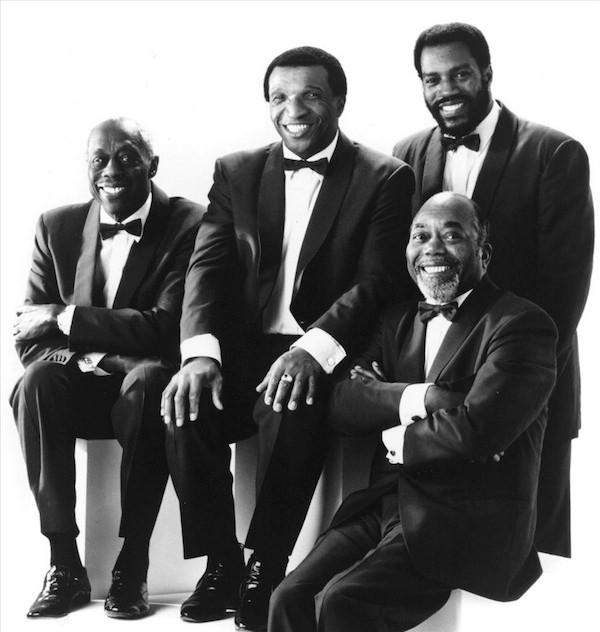


NEWS:
For May we have sessions plus special shows - one related to Nirvana and the other the city of Sydney
Artist Info
|
The Golden Gate Quartet  Image from Discogs  The definitive Afroamerican gospel group in the jubilee quartet style. The definitive Afroamerican gospel group in the jubilee quartet style.Founded as the Golden Gate Jubilee Quartet in Norfolk, Virginia in 1934 by A. C. “Eddie” Griffin, Robert “Peg” Ford, Henry Owens, and Bill Johnson, they began as a traditional jubilee quartet, combining the clever arrangements associated with barbershop quartets with rhythms borrowed from the blues and jazz. The makeup of the group changed over the years, as some members were drafted during the war and new members were brought in to replace those who had retired or left to join other groups. William Langford joined the group when Griffin left in 1935 and Orlandus Wilson replaced Ford the same year. Clyde Riddick replaced Langford in 1938, Johnson left in 1948 to join “The Jubalaires” and Owens left the group later to become a preacher and solo artist. Riddick remained with the group until his retirement in 1995 and Wilson until his death in 1998. The Gates had a broad repertoire of styles—from Owens’ mournful, understated approach in songs such as Anyhow or Hush, Somebody’s Calling My Name, to the group’s highly syncopated arrangements in Shadrach, Meshach and Abendigo. Like The Mills Brothers of popular music, they would often include vocal special effects in their songs, imitating train sounds in songs such as Golden Gate Gospel Train. Langford often sang lead, using his ability to range from baritone to falsetto, while Johnson narrated in a hip syncopated style that became the hallmark for the group. Read more on Last.fm. User-contributed text is available under the Creative Commons By-SA License; additional terms may apply. Artist biography from last.fm Some other places to look for information: last.fm Discogs MusicBrainz |
